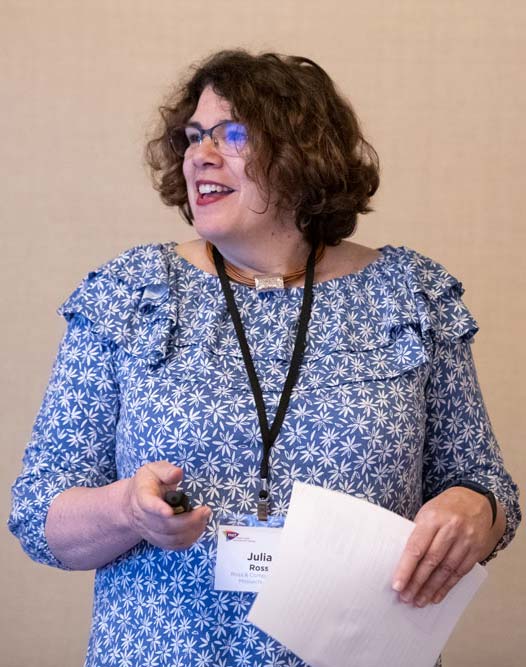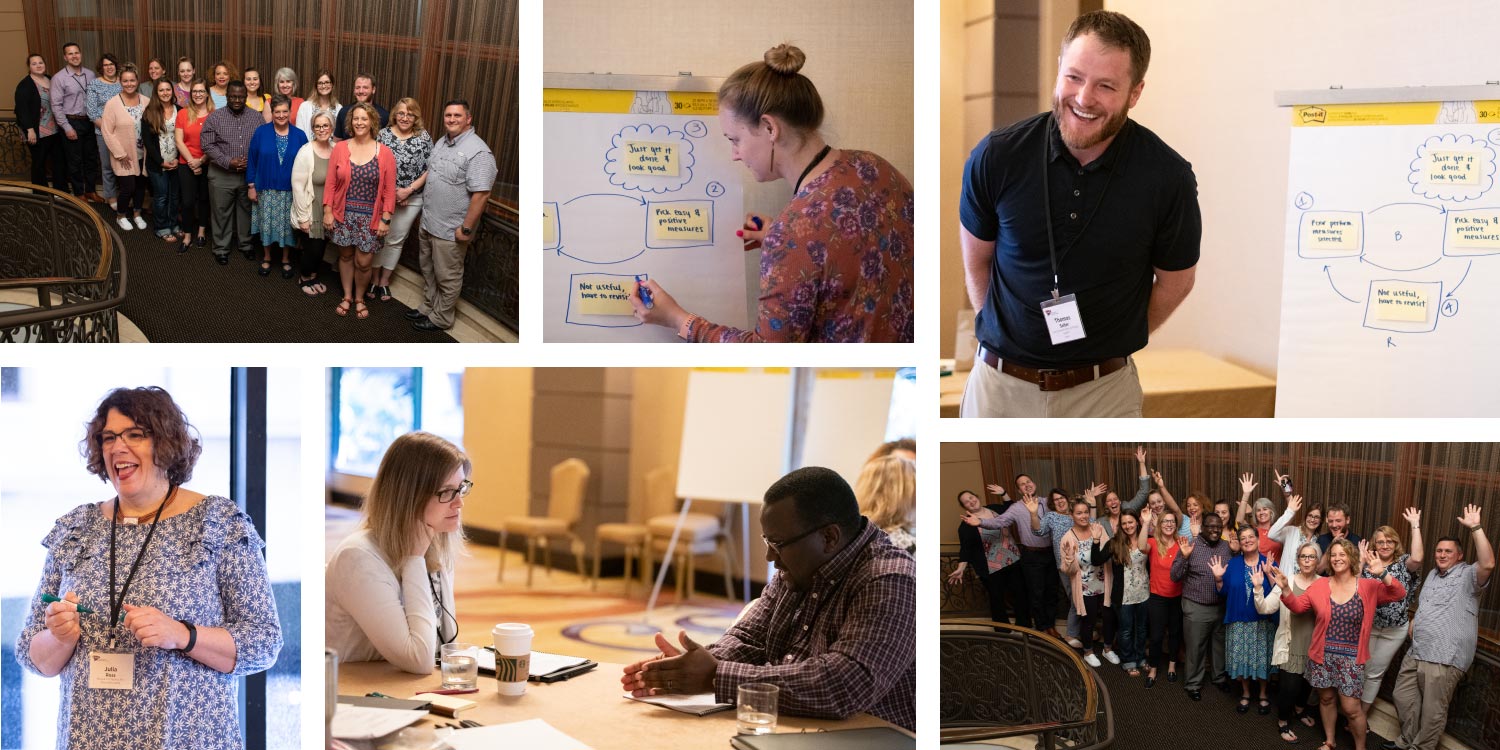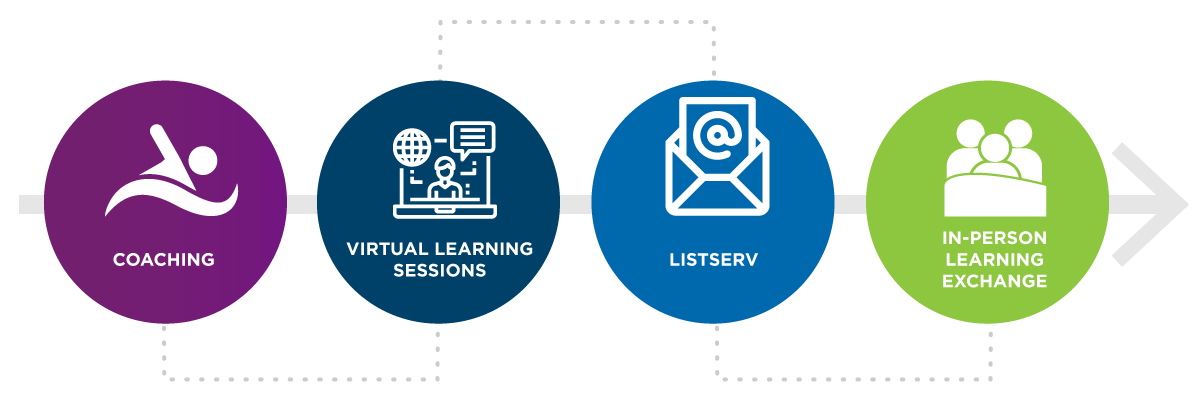Systems Thinking: An Interview with Julia Ross
- By: The Public Health Learning Network
- Date
 Systems thinking expert Julia Ross has been working in the field of organizational learning and systems change for over 30 years. Much of her work focuses on building the capacity of individuals, teams, and multi-stakeholder groups, using a systems thinking approach to address complex issues and create scalable solutions that offer long-term positive outcomes.
Systems thinking expert Julia Ross has been working in the field of organizational learning and systems change for over 30 years. Much of her work focuses on building the capacity of individuals, teams, and multi-stakeholder groups, using a systems thinking approach to address complex issues and create scalable solutions that offer long-term positive outcomes.
Earlier this month, Julia led a workshop for public health department leaders at the 2019 Public Health Improvement Training (PHIT) as part of the National Network of Public Health Institute’s (NNPHI) new Strategic Scholars Program, funded by the CDC and designed to build capacity in the eight strategic skill areas identified in the report Building Skills for a More Strategic Public Health Workforce: A Call to Action. Since 2017, Julia has been working with PLHN member New England Public Health Training Center to bring Systems Thinking to the public health workforce via live and online training and coaching of teams.
We spoke with Julia to get a better understanding of what a systems thinking approach is and how this approach can benefit the field of public health. This conversation has been lightly edited for length and clarity.
Can you share your definition of systems thinking?
Systems thinking is an approach or methodology that examines the relationships or connections between various elements in a system. It is typically applied to problems that have defied previous resolutions. The systems thinking approach enables [public health professionals] to better understand the underlying causes that are contributing to a particular outcome or result. Without this understanding, there is a tendency to treat the symptoms of the problem, which often produces a short-term benefit, but over time, makes the problem worse.
Systems are complex and interconnected. When wanting to make a change in a system, it’s important to recognize how the change will play out and impact other parts of the system. Using the tools and methodologies of systems thinking helps [professionals] understand what these impacts are in many parts of the system.
Why do you believe systems thinking is such an important skill for public health professionals right now?
There are many public health issues—alcohol and tobacco use, childhood obesity, the opioid epidemic, maternal health, nutrition, and inadequate housing—that are a part of complex systems. A lot of resources are spent, understandably, addressing the symptoms of these problems. And while that is necessary, it is important that public health professionals also address the underlying causes.
Using a systems thinking approach will help to anticipate unintended consequences, engage multiple stakeholders in addressing the issues, and communicate about the nature of the problem and ways to address it that encourage accountability and avoid blame.
What challenges or barriers might make it difficult for an organization to adopt a systems thinking approach?
I think one of the primary challenges has to do with the learning orientation and stance needed to support a systems thinking approach. This stance requires individuals to be genuinely curious and reflective. [People also have to be] willing to examine their own role in perpetuating the problem [and] courageous in taking action that might go against the status quo.
Organizations will often take on large projects that are complex and that don’t produce immediate results. This can cause frustration and have an impact on the motivation and morale of the people working on the project. [To address this, organizations can] start small with a group of people who are champions of the work with a strong commitment, patience, and a tolerance for mistakes that they learn from.
Tell us about what participants experienced during your Public Health Improvement Training (PHIT) workshop. What do you hope participants walked away with and how will they be able to immediately start applying what they learned?
The workshop was very experiential and application oriented. About 20 percent of the workshop was lecture where I introduced various tools and methodologies, and the balance was participants applying these tools and methodologies to both case studies and their own organizational challenges. My hope is that participants have altered how they see, hear, and relate to the world around them.
Are there articles, books, or training that you recommend for public health professionals interested in learning more about systems thinking?
There is a free one-hour online introduction to systems thinking developed by the New England Public Health Training Center that has been certified quality by the Public Health Learning Navigator, several systems thinking articles at www.thesystemsthinker.com, and two books by Peter Senge—The Dance of Change and The Fifth Discipline Fieldbook. For information about bringing the NEPHTC Systems Thinking Training Program to your organization, click here.
The Strategic Scholars Program includes an in-person learning exchange, individual coaching, online learning opportunities and a chance to exchange information with your peers throughout the course of the program. Application instructions for the next Strategic Scholars Class will be released in early 2020. Sign up here to be notified.


Want to learn more about the Strategic Scholars Program? Send us an email at trainings@nnphi.org.

 Subscribe To Our Communications
Subscribe To Our Communications